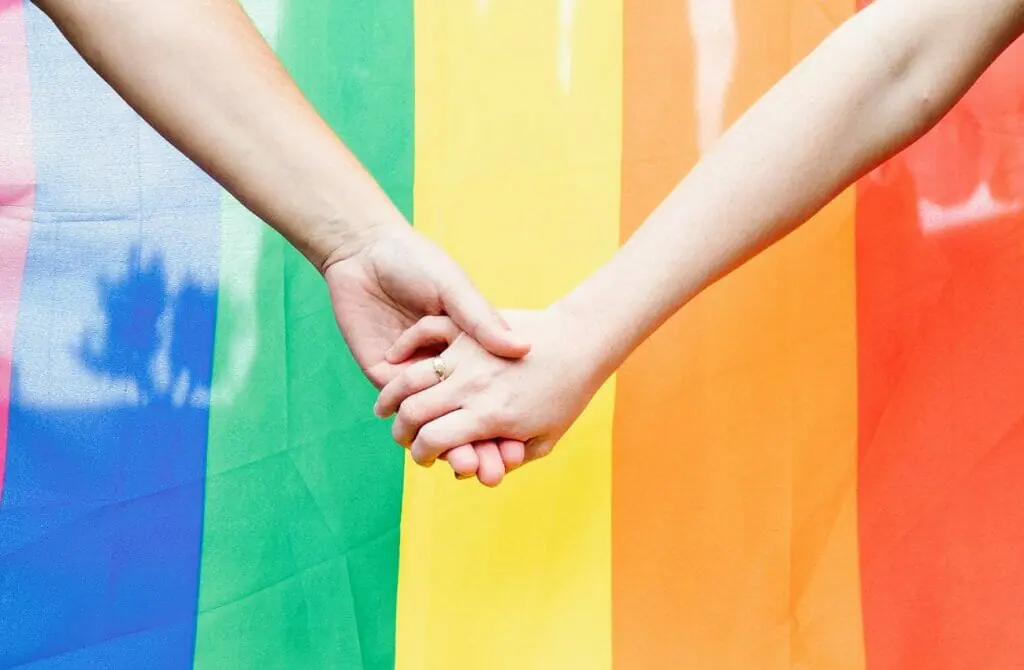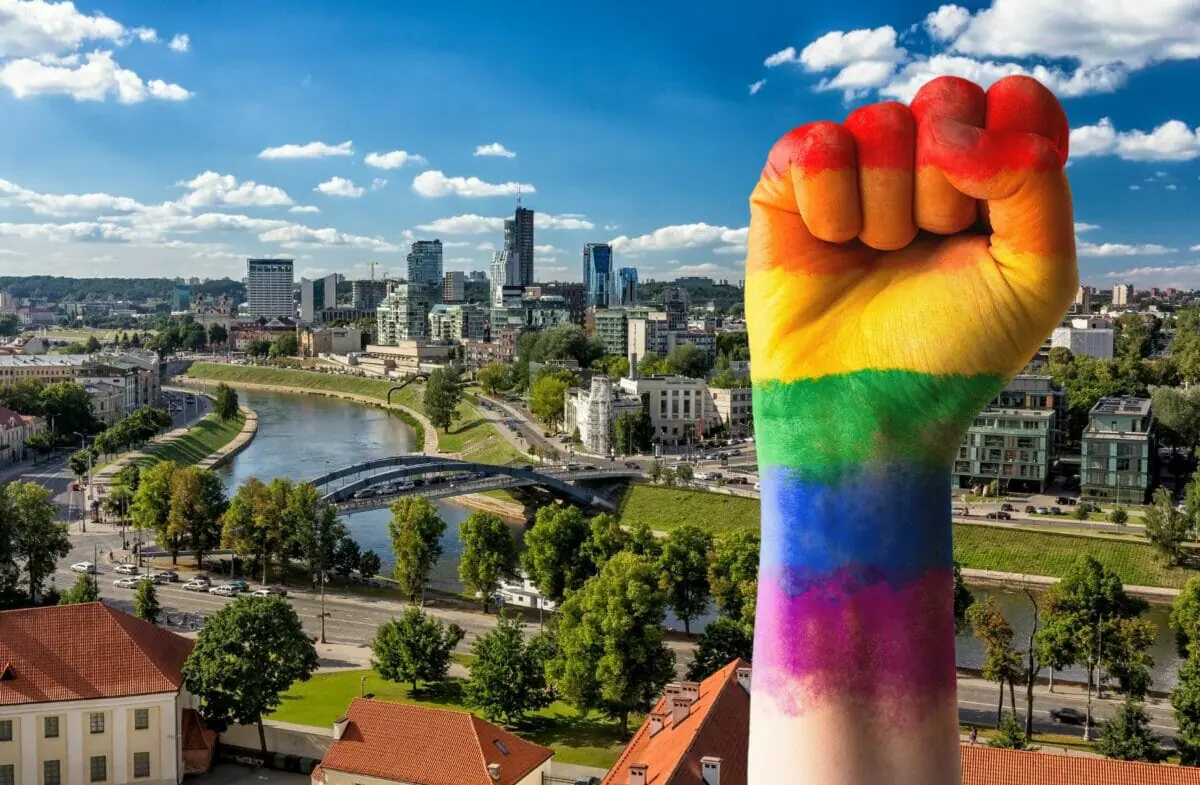Lithuania has made strides in recognizing and protecting LGBT rights; however, there is still significant room for improvement. Homosexuality has been legal since 1993, but same-sex marriages and adoptions are not recognized, while only foreign same-sex marriages are acknowledged under the law. Discrimination based on gender or sexual orientation is outlawed in areas such as housing, employment, and military service.
Unfortunately, negative attitudes toward gay and lesbian individuals remain prevalent throughout the country as public opinion polls continue to show limited support for same-sex marriage and widespread opposition to homosexuality.
Local LGBT individuals and visiting tourists may experience different levels of acceptance in Lithuania. While tourists might not face the same challenges as locals do, it is essential to stay vigilant and err on the side of caution.
Both locals and tourists should be aware of potential bad actors and consider keeping a low profile in certain situations to ensure their safety. It is important to note that circumstances can change quickly, and information might become outdated, so always seek current advice and recommendations before embarking on your journey.
In order to better protect yourself while in Lithuania, consider staying informed about local attitudes and the most recent legal developments. Additionally, reach out to local LGBT organizations and advocacy groups for guidance, as they can offer useful advice and support tailored to the current situation. It is crucial for everyone, regardless of their background, to foster a culture of understanding and acceptance while traveling or residing in any country.
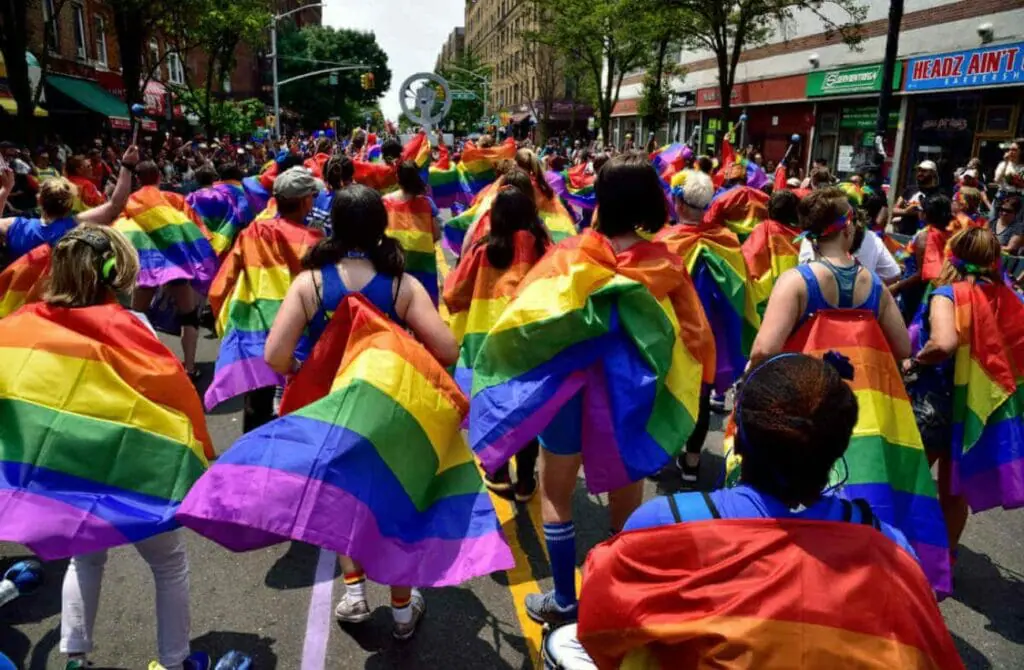
History Of LGBT Rights In Lithuania
Homosexuality was legalized in Lithuania in 1993. Since then, the country has slowly progressed towards recognizing and protecting the rights of the LGBT community. Although same-sex marriages are not recognized, foreign same-sex marriages are acknowledged by Lithuanian law.
Discrimination based on gender or sexual orientation is outlawed in housing, employment, and military service. In 2010, the first gay pride parade took place in Vilnius, marking a significant moment in the fight for LGBT rights in Lithuania.
Despite these advancements, negative attitudes towards gay and lesbian men and women are still entrenched throughout the country. The Lithuanian Gay League (LGL) is the only non-governmental organization in Lithuania exclusively representing the interests of the local LGBT community. Founded in 1993, LGL works diligently to promote LGBT rights and create an inclusive society.
For tourists visiting Lithuania, it’s essential to understand that while the legal situation for LGBT individuals has improved, societal attitudes may not always be as accepting. It’s crucial to exercise caution and stay informed about the current state of LGBT rights in the country. Situations can change quickly, and information can become outdated, so seeking current advice before traveling is highly recommended.
To protect yourself while traveling in Lithuania, avoid openly displaying affection in public, especially in rural areas or smaller towns where attitudes may be more conservative. It is advisable to connect with local LGBT organizations and communities, such as LGL. They can provide up-to-date information and support during your stay in Lithuania. Please remember that there can be bad actors in any country, so exercising vigilance and erring on the side of caution will benefit all travelers, regardless of their sexual orientation.
In conclusion, Lithuania has made strides to recognize and protect LGBT rights. However, societal attitudes and acceptance still require considerable progress. It’s essential to stay updated on the latest information and exercise caution while traveling in order to have a safe and enjoyable visit to this beautiful country.
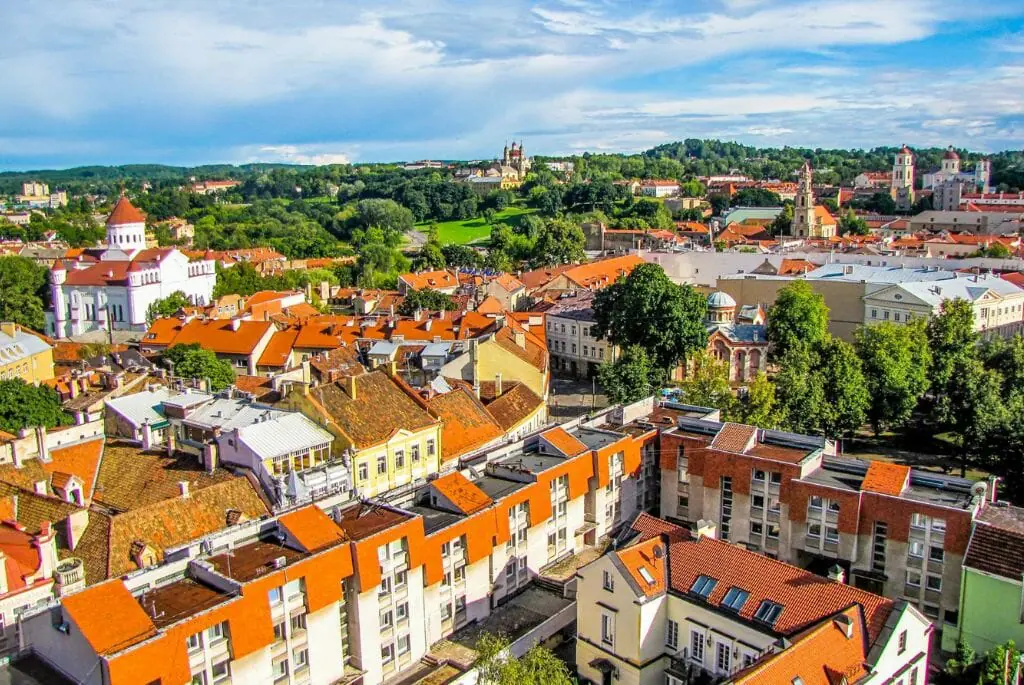
The LGBT Current Situation In Lithuania
In Lithuania, homosexuality has been legal since 1993, but there is still a lack of broader LGBT rights when compared to other European countries. For instance, same-sex relationships are not recognized, hindering legal protections and provisions for same-sex couples. Discrimination based on gender or sexual orientation is prohibited in housing, employment, and military service.
For local LGBT individuals residing in Lithuania, they face challenges due to the absence of rights protecting and recognizing their relationships, and the country reports one of the highest discrimination rates in the EU. However, progress is possible, and comparing Lithuania to its immediate neighbors Latvia, Poland, and Belarus, the country performs better in terms of LGBT rights.
When it comes to tourists, there are no specific legal implications for LGBT travelers. However, it is advisable to remain cautious, as the overall opinion and acceptance of LGBT individuals in Lithuania may not be as widespread as in other European countries. Tourists should be aware of the local culture and respect societal norms while enjoying their time in Lithuania.
To ensure personal safety, both locals and tourists should stay updated on current news, laws, and public opinions related to LGBT rights in Lithuania. This can be done by regularly checking reliable news sources and official government websites. It is essential to remember that the situation can change rapidly, and information may become outdated.
Additionally, it is important to be cautious and vigilant, keeping in mind that, like in any country, there can be individuals with hostile intentions. Building a support network and knowing emergency contacts can be a helpful step in ensuring personal safety.
Lastly, it’s imperative to seek current advice and information before traveling or making any significant decisions related to LGBT rights in Lithuania, as situations can change and evolve over time. Staying informed and updated is the best way to ensure a safe and enjoyable experience.
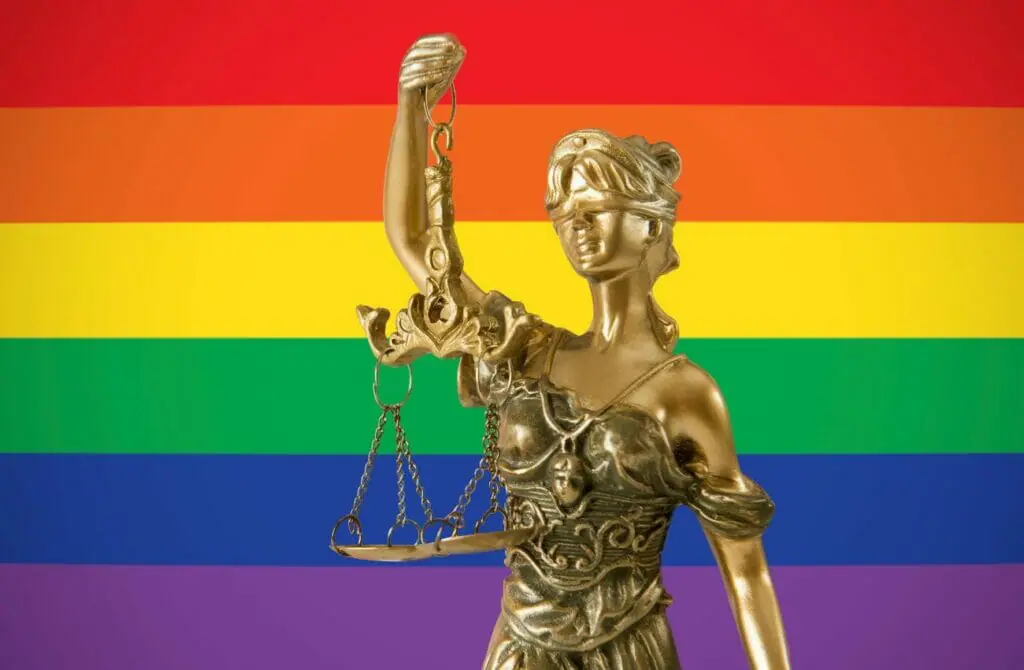

The Future For The Queer Community In Lithuania
As the political and social landscape in Lithuania evolves, progress is being made in recognizing the rights of LGBT individuals. Although negative attitudes towards gay and lesbian individuals still persist within Lithuanian society, the country is taking steps towards legalizing same-sex civil partnerships. However, full marriage equality could be up to a decade away.
In terms of how LGBT rights affect local people versus tourists, Lithuania does not currently have any specific laws targeting tourists based on their sexual orientation or gender identity. Nonetheless, it is always important for both locals and visitors to remain vigilant and be aware of the prevailing attitudes in any given location.
To protect yourself, it’s important to be aware of the local customs and sensitivities and to respect them as much as possible. It’s important to exercise situational awareness, avoid engaging in public displays of affection that could attract unwanted attention, and make use of LGBT-friendly resources to find safe environments to socialize and relax.
The future is uncertain, and situations can change rapidly. As such, it’s essential to stay up-to-date with the latest information and seek current advice before traveling to Lithuania or any other destination. While there may be negative attitudes and bad actors everywhere, it’s important to remain vigilant, cautious, and well-informed.
By maintaining a professional and authoritative approach when discussing LGBT rights in Lithuania, we can ensure that the information provided is both accurate and useful, empowering individuals to make informed decisions about their own safety and well-being in this dynamic environment.
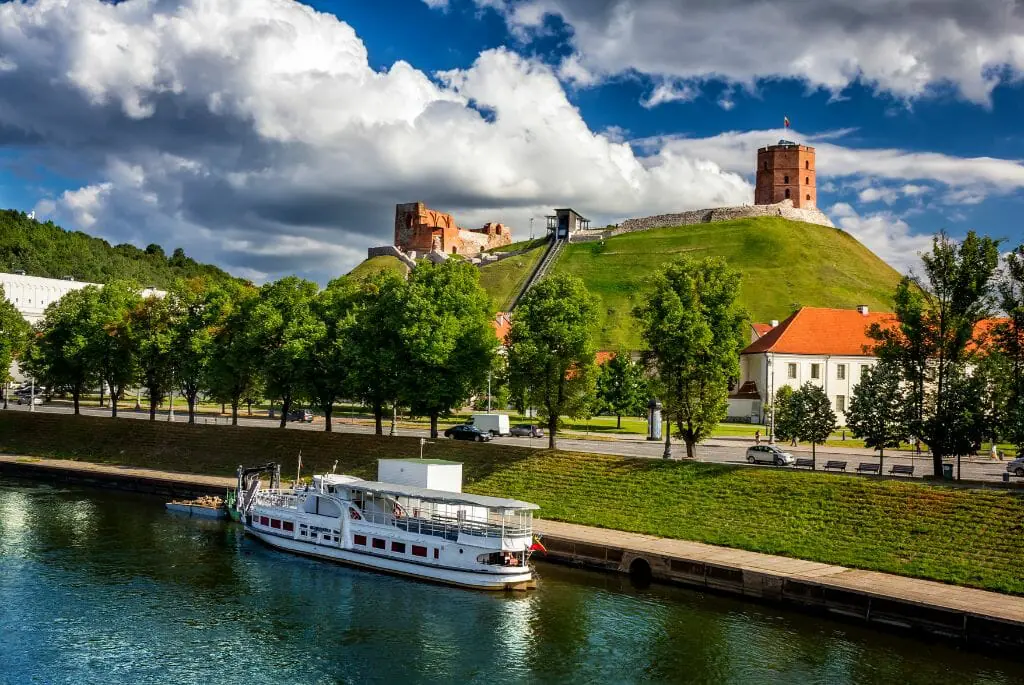
Protect Yourself While Travelling In Gay Lithuania
While LGBT rights in Lithuania have improved in recent years, negative attitudes against gay and lesbian men and women remain firmly entrenched throughout the country. As a result, both locals and tourists should be aware of the challenges they might face.
When it comes to visiting Lithuania as an LGBT individual, you may not experience the same level of acceptance as in more progressive countries. However, it is still crucial to remain vigilant and cautious in public spaces, as locals may hold differing views on LGBT rights. Tourists should be aware that public displays of affection and other outward expressions of sexual orientation or gender identity may not be widely accepted or might even attract negative attention.
Local LGBT individuals face similar challenges in their daily lives. While discrimination based on sexual orientation and gender identity is illegal in Lithuania, social acceptance is not as progressive. This means that locals may need to be more cautious about openly discussing their orientation or expressing their identity, especially in areas where anti-LGBT sentiment is strong.
To protect yourself, it is essential to be aware of your surroundings and the attitudes of the people around you. If you feel threatened or unsafe, seek assistance from local law enforcement or an international organization such as Amnesty International. It may also be helpful to connect with local LGBT communities or online forums for support, resources, and advice.
Please remember that situations may change rapidly, and information can quickly become out of date. Make sure to stay informed about the current situation in Lithuania and any changes in attitudes or legislation regarding LGBT rights. Be prepared to adapt to the local environment and always remain cautious of your surroundings and the behavior of others.
In conclusion, while Lithuania has taken some positive steps forward in recent years, LGBT individuals, both local and visiting, still need to take precautions to ensure their safety and well-being. By being vigilant and seeking up-to-date information, you can protect yourself and enjoy your time in Lithuania.
